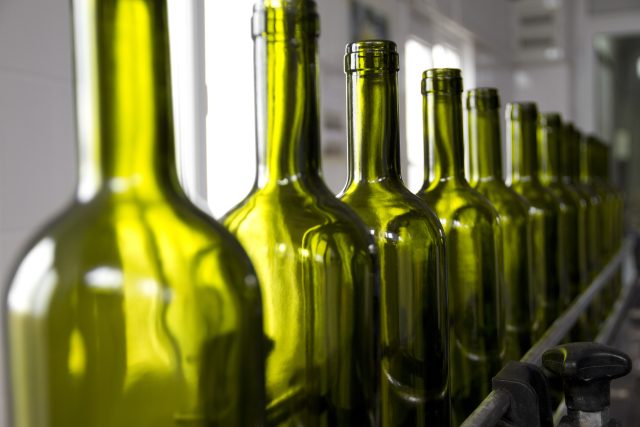Bulk is best for the environment “and your bottom line”, says The Park
With the bulk wine category booming, The Park reveals why choosing to bottle your wine locally is better for the environment and your bottom line.

Award-winning Bristol-based facility The Park has built its longstanding success and impressive customer list on the back of the economic and environmental advantages of bulk wine. Moreover, as a business it’s dedicated to debunking the tired myth that bulk wine means lower quality.
“Wine has been transported in barrels to the UK for packing by local merchants close to the point of sale for hundreds of years,” says general manager Richard Lloyd.
“This included premium wines, such as Champagne, that were destined to be packed into higher-quality glass in the UK than the countries of origin could produce. British glass was of better quality due to the higher furnace temperatures resulting from a better standard of coal. It was only from as recently as 1924 that things began to change in terms of bottling at source.”
However, things have now come full circle, with 60% of Australian exports now transported in bulk and packaged in-market, for example.”
The Park packages wines for many of the world’s major brands, including Mudhouse, Echo Falls, Kumala, and Hardys. According to Lloyd, these household names choose bulk because they understand that transporting wine in bulk rather than in bottle delivers a higher quality, fresher-tasting product that is kinder to the environment, and is more cost effective than wine packaged in its country of origin.
“That’s a bold statement to make, but one we have the facts to support,” he says.
As Lloyd explains, shipping wine in bulk means you are not transporting glass bottles or the empty space found inside a standard case of six bottles.
“This means you can reduce the number of containers you ship by up to a third, which is not only a huge economic advantage but also reduces the supply chain carbon footprint by 18,000 tonnes,” he points out.
Not only that, but the category has evolved to ensure that bulk can provide superior quality to its bottled-at-source equivalent.
The Park has tracked and compared the temperature variation during its transit of bulk wine against the temperature arc of wine transported in bottle, and can confirm that bulk is favourable.
“We have been able to prove that the temperature fluctuation stresses are actually less in bulk transit than those experienced by bottled product,” Lloyd explains. “The temperature variation seen in bulk varies from 12 to 27°C, while bottled wine experiences a much bigger swing of around 5 – 33°C.”
Partner Content
Numerous quality processes are in place at The Park to ensure products reach the consumer the way they are intended to. One key area is maintaining oxygen integrity during filling, a process which has been independently audited “to ensure that dissolved oxygen is kept to world class levels,” says Lloyd.
“Our complaints rates on the back of this activity are only two complaints per million units sold – we consider that to be a world leading result.”
Before loading, each batch of wine undergoes a suite of analytical checks and tastings by The Park’s WSET-trained staff before being given the thumbs up.
“For some wines, a spectral ‘fingerprint’ is also taken using FTIR (fourier-transform infrared spectrophotoscopy) technology,” says Lloyd. “These fingerprints can be cross-checked once unloaded in the UK to ensure the wine does not change at a molecular level in transit.”
During offload, carbon dioxide levels are measured and adjusted on a closed-loop system to ensure that every litre of wine has exactly the right amount of spritz. “This is especially important when the wines are coming towards the end of the vintage and can appear a little tired,” says Lloyd. “ We ensure that we pack wines at a consistent level of quality for the entire vintage.”
Intelligent-camera systems inspect every bottle cap to ensure that the reform, thread definition, and tuck-under are in balance, and that every bottle opens cleanly and correctly.
CASHFLOW AND TIMINGS
There are still more benefits to bulk.
Individual packaging components for bulk wine can be selected and paid for much later in the timeline compared with wine packaged at source, which can help improve cash flow for producers.
The later timing also enables The Park to respond in real time to any promotional opportunity or to fluctuations in consumer demand. It also minimises growing concerns over shipping delays.
“Covid-triggered port and network congestion in 2020 reduced shipping reliability from 80% to about 35%, and these poor service levels have never recovered,” says Lloyd. “At the same time, the cost of transporting a 20ft shipping container has increased by 130%. It’s never been a better time for bulk transit.”
As for consumer perceptions “I don’t believe the average consumer even considers the bulk aspect when it comes to making a buying decision,” says Lloyd. “It’s not a secret, but no-one is overtly advertising to consumers that their wines are packaged in the UK. I think the industry is ready to change this – it’s something we should be incredibly proud of. It’s just the right thing to do for the wine, and I think people would understand and embrace that.”
Related news
Strong peak trading to boost Naked Wines' year profitability




